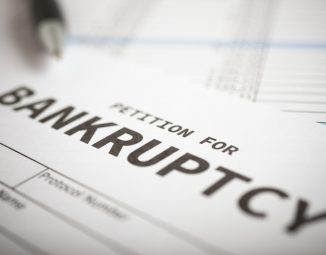Trade Vendor Victory — The Third Circuit Refines Eligibility for Administrative Claims Under § 503(b)(9)
It is hardly news that the seismic shift in buying habits towards travel and experiences and to internet shopping has dealt a devastating blow to many traditional brick and mortar retailers. Retailers are going bankrupt at a record pace, and 2017 is on track to post the highest number of retail bankruptcies since the Great Recession. Venerable retailers such as Gymboree, Sports Authority, HH Gregg, Eastern Mountain Sports and RadioShack have all recently sought bankruptcy protection. Compounding this troubling trend is the sobering fact that few of these companies will successfully reorganize. Given the realities of the prevailing retail environment, most of these bankrupt companies will shut their doors, go dark and liquidate their assets. These bankruptcies particularly impact trade vendors who supplied the companies with goods for resale and who typically face the prospects of receiving only pennies on the dollar on their claims in liquidation. However, in what will be welcome news to the beleaguered trade vendor community, the Third Circuit has recently issued a decision refining the definitions of § 503(b)(9) which will enable more vendor claims to be eligible for administrative claim status.
Under 11 U.S.C. § 503(b)(9), a creditor may recover as a priority administrative expense the value of goods sold to the debtor in the ordinary course of its business that are “received” by the debtor within the 20-day period before the filing of the bankruptcy petition. Unlike general unsecured claims, which typically result in only a small distribution, administrative claims enjoy priority of distribution and are often paid in full. On July 10, 2017, the Third Circuit Court of Appeals in World Imports Ltd. reversed the Bankruptcy and District Courts below and held that “receipt” of goods under the statute occurs when the buyer takes physical possession of the goods as opposed to the earlier date when the goods are shipped. This statutory construction will result in more shipments falling within the 20-day window and more claims being eligible for administrative claim status.
The appeal in World Imports involved the denial of the administrative claim requests of a Chinese vendor that sold furniture to the debtor. The shipments at issue were made through a common carrier from China to the United States under free on board (“FOB”) shipping terms. When goods are shipped FOB, title and the risk of loss pass to the buyer at the port of origin. The shipments left port in China more than 20 days before the bankruptcy filing, but were accepted in the United States within 20 days of World Import’s petition date.
In denying the Chinese vendor’s administrative claim, the Bankruptcy Court concluded that the operative word “received” in § 503(b)(9) is not defined within the statute. Seeking to fill this perceived statutory gap, the Bankruptcy Court looked to international commercial terms (Incoterms), which provide that the risk of loss transfers to the buyer when the seller delivers the goods to the common carrier vessel. The Bankruptcy Court concluded that the goods were “constructively received” when shipped from China, which occurred outside of the 20-day window. The District Court affirmed, leading to the appeal to the Third Circuit.
The Third Circuit took a different approach. As the Bankruptcy Code does not specifically define “received,” the word should be construed in accordance with its ordinary meaning. The dictionaries surveyed by the Third Circuit define “receive” to require the taking of physical possession. The Third Circuit also looked to the UCC definition of the “receipt” of goods in § 2-103(1)(c) as “taking physical possession of them.” Since this provision of the UCC governed sales of goods in 49 states when § 503(b)(9) was adopted in 2005, the Third Circuit inferred that Congress meant to adopt this well-known meaning of the term.
Further, § 503(b)(9) was enacted as part of the Bankruptcy Abuse Prevention and Consumer Protection Act of 2005, and created an administrative expense claim as an alternate remedy to rights of reclamation afforded under § 546(c). The Third Circuit has previously held that “receipt,” in the context of § 546(c), has the same meaning as the UCC definition and occurs when the buyer takes physical possession of the goods. Given the interrelationship between these two statutes and its prior holding that Congress intended the terms used in § 546(c) to bear the definitions of the UCC, the Third Circuit reasoned that these UCC definitions also applied to the § 503(b)(9) exception to reclamation.
The Third Circuit rejected the lower courts’ conclusions that the goods were constructively received at the earlier date when they were delivered FOB to the common carrier. Delivery, or transfer of title or risk of loss, is distinct from actual receipt of goods by the buyer. The UCC views goods given by a seller to a common carrier for delivery to a buyer as being in the possession of the common carrier and not the buyer. While the common carrier remains in possession, the seller retains the right to stop delivery. Only upon the buyer’s physical possession does the seller’s remedy convert to the different right of reclamation. Thus, the Third Circuit concluded that receipt does not occur until after the seller’s ability to stop delivery ends upon buyer’s physical possession.
The decision of the Third Circuit will undoubtedly be heralded by the trade vendor community since “receipt” occurring upon the later date of physical possession will result in more shipments falling within the 20-day claim window. However, bankruptcy is often a zero sum game, and the benefits to trade vendors will come at steep price to run of the mill general unsecured creditors. Further, this ruling will make it more expensive and difficult for debtors to successfully reorganize since confirmation of a plan of reorganization requires the payment of allowed administrative claims. Savvy trade vendors may recover much, if not all, of their pre-petition exposure by being alert to the timing of their shipments and taking advantage of the benefits of administrative creditor status under § 503(b)(9).





